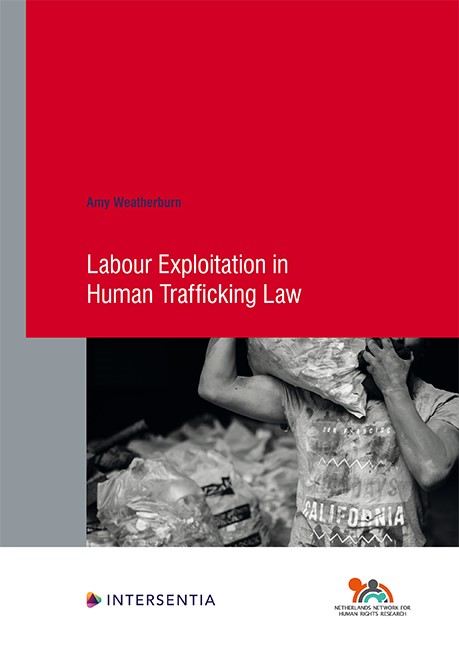Book contents
- Frontmatter
- Foreword
- Contents
- List of Abbreviations
- List of Tables
- Introduction
- PART I Exploitation in Political Theory
- PART II Labour Exploitation in Law
- PART III Labour Exploitation In The Criminal Law Of Belgium And England And Wales
- PART IV Conceptualising Labour Exploitation In Human Trafficking Law
- Conclusion
- Annex 1 List of Cases Accessed in Belgium and England and Wales
- Annex 2 Nationality of Victims and Civil Parties
- Bibliography
- Human Rights Research Series
Chapter 7 - The Formal and Substantive Criminalisation of Labour Exploitation in Belgium and England and Wales
Published online by Cambridge University Press: 10 December 2021
- Frontmatter
- Foreword
- Contents
- List of Abbreviations
- List of Tables
- Introduction
- PART I Exploitation in Political Theory
- PART II Labour Exploitation in Law
- PART III Labour Exploitation In The Criminal Law Of Belgium And England And Wales
- PART IV Conceptualising Labour Exploitation In Human Trafficking Law
- Conclusion
- Annex 1 List of Cases Accessed in Belgium and England and Wales
- Annex 2 Nationality of Victims and Civil Parties
- Bibliography
- Human Rights Research Series
Summary
In this Part, we will analyse the legislative and judicial implementation of labour exploitation offences into the domestic criminal law of two national legal orders: Belgium and England and Wales. The analysis of the criminalisation of labour exploitation is twofold: first, the formal criminalisation of labour exploitation by the legislative considers the intentions of the law makers which is secondly overseen by the substantive criminalisation which considers the judicial adjudication of black-letter law. The dual focus acknowledges that whilst there is an overall goal of compliance with the supranational legal obligations to domestically prohibit labour exploitation (as outlined in Part II), there are limits to the political process when it comes to determining the legal framework. Thus, the role of the courts is vital to ensuring that labour exploitation is handled and assessed in a consistent manner. Importantly, the analysis of the judicial interpretation of the material scope of labour exploitation returns to the necessary and sufficient conditions of exploitation in Part I. These conditions will be revisited in this Part to determine to what extent they arise in the factual circumstances of the criminal cases.
There are no standalone offences for slavery, servitude and forced labour in Belgian law. Instead the legislative opted for an approach whereby slavery, servitude and forced or compulsory labour are encompassed by the understanding of human trafficking as ‘work or living conditions contrary to human dignity’ and the removal of the means element. The adoption of a broader human trafficking definition sought to overcome difficulties such as the non-recognition of victim status amongst potential victims. Thus the analysis of the legal framework in Belgium, will focus upon a single offence: human trafficking for the purposes of labour exploitation. Conversely, in England and Wales, the criminalisation of human trafficking saw a gradual development, first introduced in 2002 but restricted to the traffic of prostitution and then extended in material scope to include other forms of exploitation in accordance with the international and regional definition. Only in 2009, were the standalone offences of slavery, servitude and forced or compulsory labour criminalised.
- Type
- Chapter
- Information
- Labour Exploitation in Human Trafficking Law , pp. 155 - 198Publisher: IntersentiaPrint publication year: 2021

